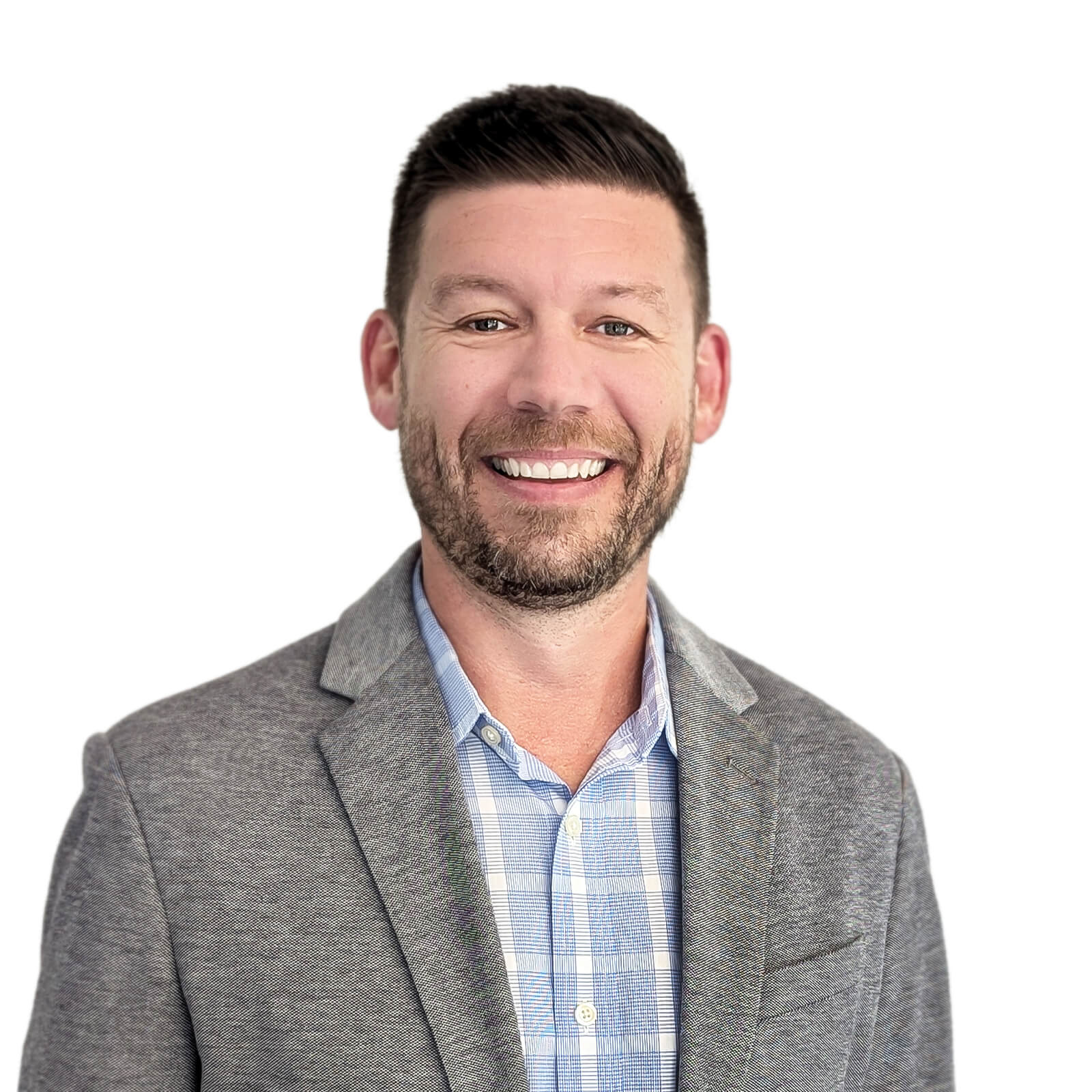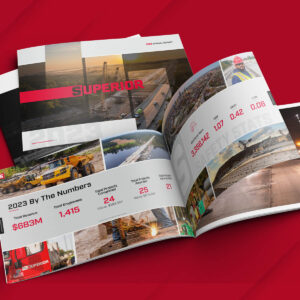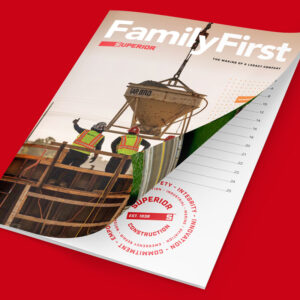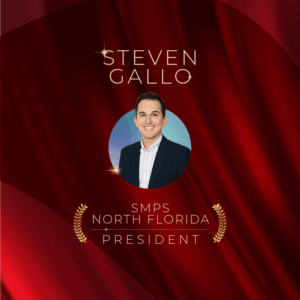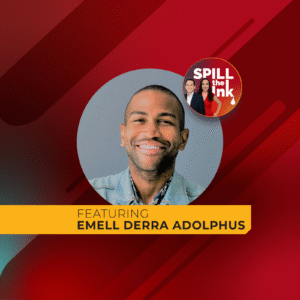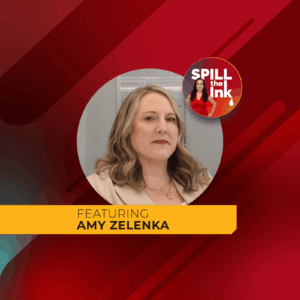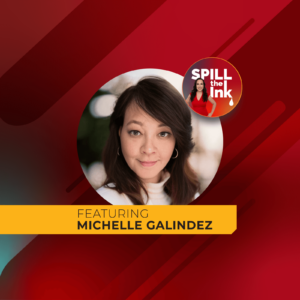
Spill the Ink: The Reputation Ink Podcast
Ending the Standoff: AEC Marketers vs. Technical Experts
In this episode of “Spill the Ink,” Michelle Calcote King sits down with Gabe Lett, Chief Marketing Officer at Prairie Engineers, to explore what happens when technical experts dictate marketing decisions and marketing teams get buried in proposal work. According to Gabe, the results are ineffective communication, missed opportunities for business development and frustrated professionals on both sides.
Gabe brings a unique perspective to AEC marketing, having grown up in the industry with a father who was a civil engineer and business owner. This background gives him deep insight into both the technical and business sides of engineering firms, which he leverages to bridge the gap between engineers and marketers to drive results for his firm.
Here’s a Glimpse of What You’ll Learn
- Who Gabe Lett is and his unique path into AEC marketing.
- About Prairie Engineers and the firm’s multidisciplinary approach.
- The biggest misconceptions between technical professionals and marketers.
- Why engineers need to move from communicating “how” to “why.”
- How to push back on technical leaders’ marketing ideas using genuine curiosity.
- The difference between proposals and marketing (and why it matters).
- Why marketing deserves a seat at the leadership table.
- How to establish marketing as business-critical rather than a convenience function.
About Our Featured Guest
Gabe Lett began marketing engineering services in 2003 for Tri-State Engineering, a family business in Joplin, MO. He had marketing and business development roles for two other engineering firms. He joined Prairie Engineers as Chief Marketing Officer in 2024. Gabe creates strategy for Prairie Engineers’ marketing and business development activities. In leading these teams, he provides inspiration and insight to help achieve growth and work satisfaction for employees.
Gabe enjoys active community service. He is an Elder at his church and serves on several community non-profit boards. In 2021, Gabe published the book, “The AEC Professional’s Guidebook: 70 Lessons to a Stronger Career.” Gabe is an avid mountain lover and regularly hikes Colorado peaks every summer. Gabe and his wife, Jamie, have three daughters.
Resources Mentioned in This Episode
- Check out Prairie Engineers
- Follow Prairie Engineers on LinkedIn and Facebook
- Connect with Gabe Lett on LinkedIn
- Say hello to Michelle Calcote King on LinkedIn
- Find Gabe Lett’s book, “The AEC Professional’s Guidebook: 70 Lessons to a Stronger Career,” on Amazon
Sponsor For This Episode
This episode is brought to you by Reputation Ink.
Founded by Michelle Calcote King, Reputation Ink is a marketing and public relations agency that serves B2B professional services firms of all shapes and sizes across the United States, including corporate law firms and architecture, engineering and construction (AEC) firms.
Reputation Ink understands how sophisticated corporate buyers find and select professional services firms. For more than a decade, they have helped firms grow through thought leadership-fueled strategies, including public relations, content marketing, video marketing, social media, podcasting, marketing strategy services, creative services and more.To learn more, visit www.rep-ink.com or email them at [email protected] today.
Transcript
Disclaimer: What you’re reading is an AI-transcribed version of our podcast. It may contain mistakes, including spelling and grammar errors.
[00:00:00] Gabe Lett: That’s where I think we need to draw some lines and say, listen, if we want to do effective proposal work and win more than we’re losing, there’s a lot of steps further up the funnel that need to be happening all the way from lead generation to lead nurturing, to promotion. If we do those things well by the time we get to the proposals, we will be winning more than we lose. And we’ll be very efficient and effective in our no-go decisions.
[00:00:36] Announcer: Welcome to Spill the Ink, a podcast by Reputation Ink, where we feature experts in growth and brand visibility for law firms and architecture, engineering and construction firms. Now let’s get started with the show.
[00:00:53] Michelle Calcote King: Hi everyone. I’m Michelle Calcote King. I am your host and I’m also the principal and president of Reputation Ink. We’re a public relations and thought leadership marketing agency for B2B professional services firms, including architecture, engineering, and construction firms. To learn more, go to rep-Ink.com.
Today we’re going to talk about when technical experts, like engineers and architects, dictate marketing decisions or marketing teams get buried in proposal work. The result often looks like ineffective communication, missed opportunities and frustrated professionals on both sides.
I’m joined today by Gabe Lett to talk about creating the conditions where marketing can genuinely drive results. Gabe is the chief marketing officer at Prairie Engineers and I’m really looking forward to hearing his insights. Not only is he a seasoned AEC marketer, he grew up in the industry with a father who had a career as a civil engineer in Missouri.
Thanks for joining us.
[00:01:58] Gabe Lett: I’m very happy to. I appreciate the invitation. I’m looking forward to our visit.
[00:02:03] Michelle Calcote King: I normally ask people how they got into AEC marketing, but it sounds like this was kind of a foregone conclusion for you. Tell me a little bit about your career path.
[00:02:14] Gabe Lett: Well, you would think so with having a dad that was a civil engineer and an entrepreneur who started his own engineering and surveying business.
I worked on survey crews growing up as a teenager. That was my summer job. It was the easy button. Dad’s company, right? I just worked for the survey crews. But I liked it. I liked the variety of it. I liked being outside. But to be really honest with you, that left-side brain never kicked in.
The science and math were just things that I had to get through in high school to get to more interesting classes. So a field in engineering or surveying really wasn’t on the radar for me. But fast forward a little bit, my dad needed some help marketing the firm as they were growing, and I was a people person. I enjoyed going to conferences and representing the company. So it just kind of grew into something that they needed a full-time presence. I said, well, I’ll give it a shot, but no hard feelings. If I do it for a year and I don’t like it, I can bow out.
[00:03:26] Michelle Calcote King: Yeah.
[00:03:26] Gabe Lett: And I’m still here 20-some years later, still marketing in AEC.
[00:03:33] Michelle Calcote King: That’s awesome. Well, tell us a little bit about Prairie Engineers.
[00:03:38] Gabe Lett: Prairie Engineers will be 15 years old this August. So here in a few weeks we turn 15. It’s a woman-owned firm based out of central Illinois, but we work from coast to coast, north to south, and even in Puerto Rico. We have a pretty cool hydrology and hydraulics job down there in Puerto Rico right now.
Prairie Engineers — we are engineers, civil engineers. We do have mechanical, electrical, plumbing engineers, but we also have a variety of different surveyors, your traditional land surveyors. We also have hydrographic surveyors, which is really fascinating — surveying underwater bodies. And then we also have natural resources, environmental scientists. Very multi-disciplined, about 115 or so people. That’s us.
[00:04:32] Michelle Calcote King: That’s great. Well, I started by asking you about your family background and how you got into it. How did that experience influence how you now approach your role? Did that have influences that have carried throughout your career?
[00:04:48] Gabe Lett: Absolutely because growing up with a dad who owned his own company, you get to hear the behind-the-scenes conversations when you lose a big contract. You feel the pressure on the business owner wanting to keep people employed, wanting to keep people busy, wanting to keep good talent and the pressure when the work isn’t there. He took that really seriously. He took it personally that this was his role to give people a meaningful job and a meaningful career.
Understanding it’s not just a business, it’s people’s livelihoods. It’s what people have risked a lot to try to create. My owners — Lisa Kramer is our owner and her husband Darren — I have a really deep appreciation for the risks that company owners take to do what they do. So that presents a little different nuance for me in my role.
[00:05:55] Michelle Calcote King: I love that. As a company owner, I can relate. Having grown up on that and seeing that technical side and that business side and now being on the marketing side, what would you say is the biggest misconception the two sides have, or misunderstandings?
[00:06:14] Gabe Lett: I’ll put the engineer’s glasses on first and look at it from their lens. If they’ve been in engineering or a technical profession related to engineering or architecture for very long, they know that marketing hasn’t always been one of the business operations of firms, especially back in the ’70s and even into the ’80s. It was kind of new to market or sell your professional services because prior to that, I think prior to ’73, you weren’t allowed to. So for folks that go back in that time period, marketing still felt kind of like a convenience, not necessarily part of your business operations as critical. But that has slowly evolved over time and I think most firm leaders now understand, at least to a certain degree, that marketing is essential.
Now having said that, engineers would be in a perfect world if the phone just rang and the email box filled up and they just got task order after task order and project after project. I mean, that would be a perfect world. But they’re not naive and they know that’s not how business works anymore. So they know that marketing’s valuable. I think what frustrates technical professionals, though, is that marketing isn’t just giving a brochure and then waiting for a phone call or showing up at a conference and expecting everybody to knock down your door at your booth.
[00:07:55] Michelle Calcote King: Right.
[00:07:56] Gabe Lett: There’s a lot more work and effort that goes in behind the scenes to generate interest, to get them into that sales funnel and into that marketing process to build trust with you to believe that you can do what they need you to do. So I think sometimes there’s some misunderstanding of the effort and the energy and the strategy that it takes to market professional services well.
And then if I were to put my marketing glasses on, I think the frustration that comes from this side of the table is marketers love to try new things. They’re creatively minded people. They like to try new things, they like to experiment. To a certain degree, I think that’s a healthy thing. There needs to be room for that. I think marketers get frustrated because a lot of engineers in particular are just very risk-averse by nature, by personality. So trying new things, experimenting, that just doesn’t sit well all the time. I can sympathize with that.
I think the two sides — it’s so much more important that marketers understand the value of metrics, of numbers of science to what they do as marketers, because that’s what engineers appreciate and engineers need to appreciate that marketers really can make a tremendous difference in the life and the growth and the maturity of your company if you just give them a little bit of leash to let them be creative and let them try some new things.
[00:09:32] Michelle Calcote King: I love that point because I talk a lot about the risk-taking nature of marketing and our clients are very risk-averse. We work with engineers, we work with lawyers. These are people trained to — they don’t deal in risk. And marketing is very much so. There has to be that experimentation.
So what do you think is at stake? If technical leaders are trying to control things too much or not giving teams the space they need to do the effective marketing and to have that spirit about it, what do you think the big risk is that they’re risking?
[00:10:18] Gabe Lett: Honestly, I think it’s probably several things. I mean, they don’t like to waste money, so they don’t want to spend a lot of money on an experimental marketing initiative that may or may not work. So they don’t like to waste money. I think the second thing is they don’t like to look foolish.
I actually have a pretty good appreciation for that one, the money thing. It’s like, okay, sometimes it doesn’t work, but as long as you don’t risk too much, lesson learned and move forward. But looking foolish is a big deal. And I think sometimes engineers feel like, hey, if we do this social media campaign that’s supposed to hit the humor button, it may not land. And we may look silly, or we may look foolish. That’s a big concern for sure. It kind of pulls back from the professionalism that they want to portray. I think that’s a pretty big risk sometimes.
[00:11:16] Michelle Calcote King: That makes complete sense. I think that’s important for, as marketers, our client base are many times those in-house professionals that we’re serving. You’ve got to really understand their drivers and the emotion that is behind it. It is about risk and how it looks on them as professionals.
Tell me about — I know that you and my producer talked a lot about the concept between helping engineers understand how to frame what they do and to kind of get them out of the how, the how-tos, which is important. But going further and communicating the why. Tell me about that and your journey to helping them understand that and maybe just kind of introduce the topic for us as well.
[00:12:05] Gabe Lett: I couldn’t tell you when that kind of epiphany occurred to me, but all the content that I was getting from engineers or technically minded professionals within the engineering or architecture world really all just had to do with how they do their job. And I thought it was fascinating. I thought I got into it. I was super interested in how things worked and how they made these design decisions, but then I realized a lot of the clients that they were serving, their eyes would just gloss over in a presentation or in a city council meeting or in an interview process. I could tell they were just losing them in the how. They really wanted to know the why. Why are we doing this? What’s the end result? How’s this going to help our city? How’s this going to make our utility run more efficiently? The why is the important thing that the client really wants to know.
So trying to help engineers bridge that — the how is important and I don’t want you to lose the how, but I want you to be able to bridge the how you’re doing your job to the why, and if you can make that bridge for the client, you will have some marketing gold on your hands because you’ll be able to do something that a lot of engineers struggle to do, which is to help them understand this is how we’re going to do this, but ultimately why, and that’s the benefit to you as the client.
[00:13:37] Michelle Calcote King: I think that’s a really great tip for marketers. It’s your job to ask the questions to get at that. And to really guide them through that and to be laser-focused on the client. The client assumes that, you know, the how. They assume I’ve hired this technical expert. They’re more concerned with the why. That’s their main focus. So the how I think nowadays is becoming the table stakes. But they know the technical details. They want to know that you really understand why it impacts them, what are the risks if it fails, all of that. So that’s a really good mindset shift to enforce.
What about — I hear this all the time. I’ve been working with these types of industries so long. How do you advise marketers to kind of push back when engineers do have those ideas that aren’t quite right for marketing? How do you push back on those ideas and establish yourself as that authority so that you can push back?
[00:14:45] Gabe Lett: I think one of the best pushback tools is genuine curiosity. So I think if a marketer enters into a situation with their firm where the engineers are wanting to do something a certain way and, let’s say they want a certain way the website functions. And as a professional marketer, this is a disaster. This isn’t going to work. Well, if you just come out directly and say, this is going to be the disaster, this isn’t going to work. That’s not going to get anybody anywhere. They’re going to be frustrated. You’re going to be frustrated. But I think if you apply genuine curiosity, well, why do you think this is going to work? What have you read or what have you learned that leads you to believe this is the right thing to do? Or what’s going to get our prospect’s attention and let them talk through it. Let them explain what they think, the value of their, because oftentimes they’ll stumble upon or discover their own fatal thing or flawed thinking if you just let them explain why they’re coming from the direction they’re coming from, and most often it’s because they’ve seen somebody else do it. So they’re copycatting somebody else in the market and they think, well engineer ABC built their website this way. So that must be what you do.
And that’s not always a good benchmark. That’s not always a good place to stand. So I think just being genuinely curious and let them explain, which then gives you the opportunity because you’ve earned their respect by being genuinely curious for them to listen to your reasons why you think you should do it a different way.
[00:16:26] Michelle Calcote King: That’s excellent advice to really kind of get to the core. And sometimes they might not even be communicating their idea well. So really kind of exploring that with them.
The other thing I wanted to touch on that everyone in this industry knows is proposals and often conflating proposals with marketing. Tell me why you think firms should separate — I know that I, but I’d love for you to, for anyone listening who doesn’t quite see the difference, why should you separate out those two functions and be very clear about what they are?
[00:17:05] Gabe Lett: I think I might want to nuance the word separate just a little bit. I think separate may be a little bit too hard of a line to draw. But at the same time, there’s a principle here I think worth teasing out.
So I’ll back up and say, a number of weeks ago I posted something on LinkedIn and it was basically a list of on the left side activities that are marketing and on the right side activities that are not marketing and encouraging firm owners to consider, like what you’re asking your marketing team to do. Is it really marketing? And in that right-hand list, I had proposal development as not marketing, and I had a pretty good handful of folks take exception to that and express their displeasure with that delineation. But it was a very good conversation. And here’s where I fall, I think.
Proposal development ends up being at the very bottom of the sales funnel. So when you’re doing proposal work, you’re doing what’s called bottom-funnel marketing. It’s the very last thing that happens before somebody makes a decision to hire you. So I don’t want to go so far as to say it’s not marketing-adjacent or marketing-related. I do think it may be both of those things, but I don’t think it’s central to the marketing or even maybe the most important function of marketing, and that’s where I think we need to draw some lines and say, listen, if we want to do effective proposal work and win more than we’re losing. There’s a lot of steps further up the funnel that need to be happening all the way from lead generation to lead nurturing, to promotion. If we do those things well by the time we get to the proposals, we will be winning more than we lose.
And we’ll be very efficient and effective in our no-go decisions. I mean, it’ll just make that process much leaner and much more effective. What I see though, and I’m sure you’ve seen the same thing, most firms burden their marketing teams with so much proposal work that they don’t get to do top-of-funnel or mid-funnel marketing tasks hardly at all.
And so those things just get neglected and those teams find themselves in a vicious cycle of just competing for way more work than they can win by writing proposals that have low hit rates and low potential for winning any work. And it just burns marketing professionals out.
Because that’s not what they get into marketing for. Now, that’s not to say that there aren’t good proposal folks out there that love doing proposal work, and those are the people you want on your team to be doing that function. But I’ll give you a good example. My team, I’ve got five. I just looked at the numbers before this conversation and so far this year we’re spending about 22% of our labor hours on proposal work.
So it’s still important. I still would argue that it should be under the function of the marketing team, but understand where it fits. Understand all the stuff that gets neglected if you don’t do those things well, you’re going to be stuck in proposal world 80% of your labor hours, which isn’t I don’t think a healthy situation.
[00:20:39] Michelle Calcote King: Well, and because proposals by their nature have that urgency about them, it is easy, I think for teams or firms that don’t understand how all the other stuff impacts your proposal success, the kinds of opportunities you get, all of that. It’s definitely an outcome.
[00:20:59] Gabe Lett: I hope I communicated that okay because I know that’s a sensitive topic among our colleagues among AEC marketers and business professionals. But I want to create a little more nuance there and appreciate the fact that there is a very valuable aspect to that. It’s just, let’s absolutely, let’s put it in its healthy spot.
[00:21:21] Michelle Calcote King: Absolutely. No, I think the way you frame that is it’s important. It just sits here at the bottom of the funnel. Just like you wouldn’t ignore the top of the funnel. If you put all your effort there, you’re missing a lot. And I think most marketers are kind of itching to do some of that other work.
Absolutely. And they want that opportunity. But yeah, it’s absolutely an important skill and a deep niche area. But it’s the fact that firms overlook all the other things that can lead to success.
The other thing I wanted to explore with you is the role of marketing in leadership with firms and why you think leadership marketing deserves that seat at the table with leadership and how can it impact firms. Can you tell me a little bit more about how do you convince your firm that marketing is an important role to have that influence at the leadership level?
[00:22:20] Gabe Lett: I’ll answer your question backwards. I’ll answer the last part of your question first and then work my way back. But the firm that I’m with now, I’ve been there here for a little over a year, and they hired me at the CMO spot. So they knew they needed leadership in their marketing and they hired for that. So I got to start on day one with that opportunity of having participation with the leadership of the company and helping influence and drive the decisions as it concerns how we’re going to grow and where we’re going to grow. So I’m enjoying that at this company. This is the first — no, that’s not true. And my dad’s company, I did have that seat temporarily for a little while until the company sold to a larger firm, but.
What I’ve come to realize is that firms that understand marketing as a business-critical function, I think do much better than firms that just see marketing as a business-convenience function. So in other words, when things get lean, if marketing is one of the first things you’re looking at to put on your chopping block, you’re not considering marketing a business-critical function of what you do. The firm I’m with now does see it as business-critical. They do understand that this is a major function of how we’re going to grow and develop as a company and continue to provide good work for our people and do good work for our clients.
So I think that is a big differentiator and I think marketers would do well to understand, like you don’t have to have the title to lead. At my previous firm, I did a lot of leadership things without having that leadership title, and I think it was appreciated and valued. So I think rather than waiting for somebody to come knock on your door and offer you a CMO role, take those opportunities you have now within your current firms to lead from your marketing position. That means taking risks. That means like we talked earlier, providing some pushback, doing so in a gracious way, in a helpful way, not a combative way. You’re there to serve your firm.
I mean, our clients are all of our engineers and surveyors and scientists. I mean, that’s what I tell our marketing team often — our clients are the company and it’s our job to keep them happy. So there’s an attitude that goes with that, right? And that’s leadership. It’s not just dictating and telling everybody what to do. It’s serving your company well and making sure that you’re putting them in the best position to succeed.
[00:25:18] Michelle Calcote King: I love that. If there was one change firm leaders could make tomorrow, so you had the ability, you have a genie in a bottle to better support their marketing teams, what would you want for that to happen?
[00:25:36] Gabe Lett: I think we just skirted around it, which is identify a seasoned marketer and give them both the title and the authority to be a leader within your firm and what I mean by that, and I say title, but really what I mean by that is everyone recognizes that marketing is a business-critical function within your company from top to bottom and everyone recognizes it because there are people that are respected for that position and that authority of being able to produce good marketing for the company. It’s always a team sport. It’s not — we all have to work together, communicate well together. Doesn’t mean every idea marketing has is a good idea. We have to be willing to hear no and be criticized when we make a bad move or a bad decision. But that’s the growing learning process together with your technical people. They will appreciate you more if you learn from your mistakes and grow and become better.
[00:26:43] Michelle Calcote King: I can’t let you go without asking about your book. So when I really got involved in this industry and I was kind of soaking up everything I could learn — Gabe wrote a book, “The AEC Professional’s Guidebook: 70 Lessons to a Stronger Career.” I’d love to know a little bit about why you wrote that and why you think marketers should read it. Just give me the background on that book.
[00:27:10] Gabe Lett: It’s — I always tell people it’s a book that wrote itself and they’re like, you’re being silly. But the story is, when I was with my previous firm, I needed to try to raise the marketing acumen of the leadership and the firm as a whole. And one of the things I decided to do is just write a marketing tip every Monday morning in an email to all the people that had any client-facing responsibility at all.
And I would write things on marketing, on business development, on good client experience, just anything that had a marketing or marketing touch to it. And I would borrow from other folks that I found good stuff on. Maybe SMPS had something good or Stanton Street put something out or another consultant like yourself, Michelle, would put something good out there. And so I would borrow and put my own thoughts and pretty soon I realized I had a pretty good number of these Monday marketing emails. And one of my colleagues said, man, have you ever thought about putting this into a book? I mean, this would make a pretty good book for AEC professionals. And he was actually thinking of engineers and leaders more than he was even marketers. So I’m like, no, I didn’t think about that, but I pursued that and sure enough, published on Amazon and it’s done pretty well.
I probably sell a couple of books a month. It’s not — doesn’t make you a ton of money. Doesn’t make you rich. It’s a niche book, but I would say anybody in marketing, especially entry-level five years or less, could be very — it could be very beneficial to your career to pick up a copy and lots of good stuff in there. All bite-sized stuff. Nothing’s long. They’re all — and you can skip and hop around in it. You don’t have to read it from front to back.
[00:29:02] Michelle Calcote King: I love that. That’s great content repurposing right there. So well done. Tell me, do you have one final thought or lesson that you’d like to leave our listeners with?
[00:29:14] Gabe Lett: I just am really excited at the thought that anyone who might listen to this conversation, especially if they’re relatively new in marketing and AEC — this can be an exceptionally good career. Every career has its ups and downs and its unique challenges. And this one is no different. But I think if you push through and learn as much as you can and grow as a professional marketer, this industry will reward you for that. So stick it out, keep going, keep learning, network. Get to know a lot of other folks who do what you do for other companies. And this can be a very rewarding career if you want to make it that.
[00:29:58] Michelle Calcote King: I love that. And SMPS we can’t not plug them. And you’ll find a lot of other AEC marketers that are more than willing to share their insights, just like you did with that book and help the more junior marketers out there.
[00:30:14] Gabe Lett: Absolutely.
[00:30:15] Michelle Calcote King: Yeah. So we have been talking to Gabe Lett of Prairie Engineers, so thank you so much for your time.
[00:30:21] Gabe Lett: Yeah, thank you Michelle. It was a great conversation. Really appreciate it.
[00:30:24] Michelle Calcote King: Absolutely.
[00:30:29] Announcer: Thanks for listening to Spill the Ink, a podcast by Reputation Ink. We’ll see you again next time and be sure to click subscribe to get future episodes.
Related AEC and Engineering. Content
Maximizing Employee Engagement Through a Compelling Employee Newsletter
Reputation Ink | Jun. 24, 2025
Rebuilding a Construction Company’s Brand With Impactful Visuals
Reputation Ink | Jun. 24, 2025
Join the INKsights Email List
Get Exclusive Updates on Awards, Lists, Rankings, Editorial Opps and More.
Subscribe to our newsletter, INKsights, to receive insights (pun intended) on thought leadership, public relations, and marketing for B2B professional services firms sent straight to your inbox.
Available only to our email subscribers:
Once a month, you’ll receive the latest awards, rankings, lists and editorial opportunities in the legal or AEC industry (you choose which you’d like to receive).
In the off weeks, we send you our latest thinking on the marketing and PR issues facing those industries. You can opt out anytime (although we’ll bet our favorite coffee mug you’ll never want to leave).
